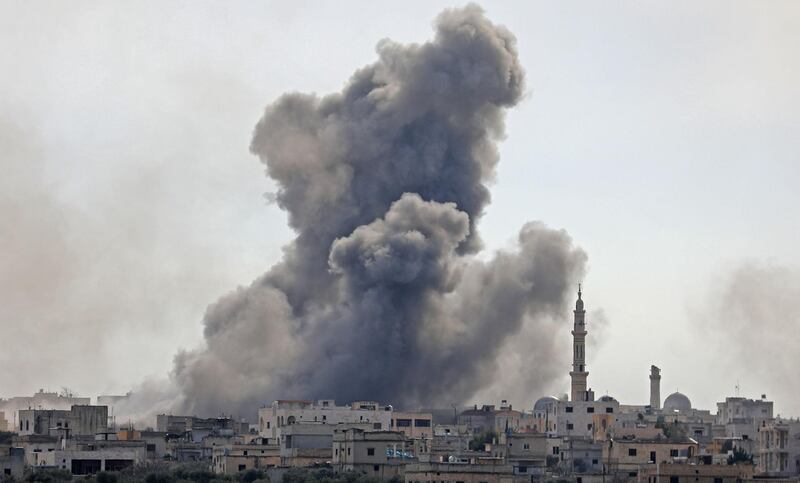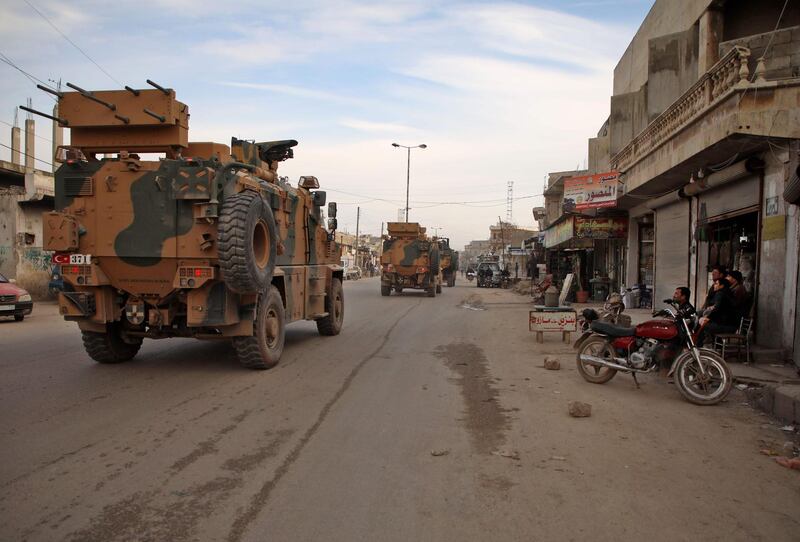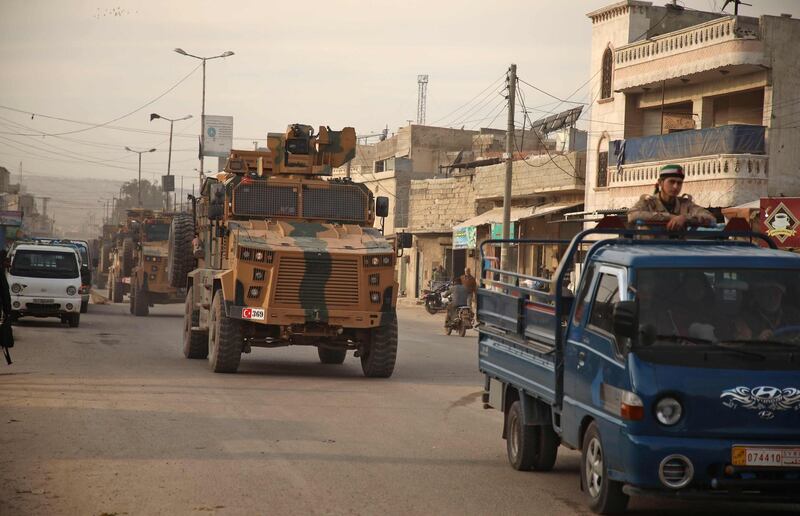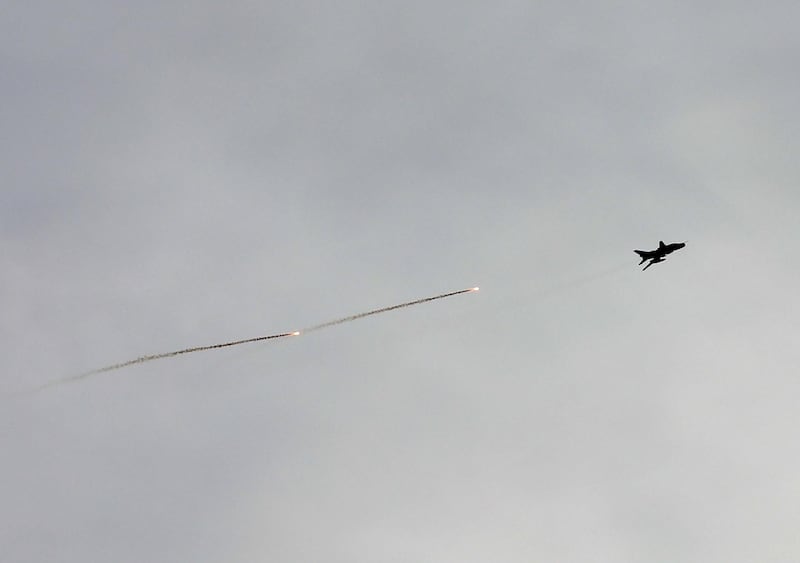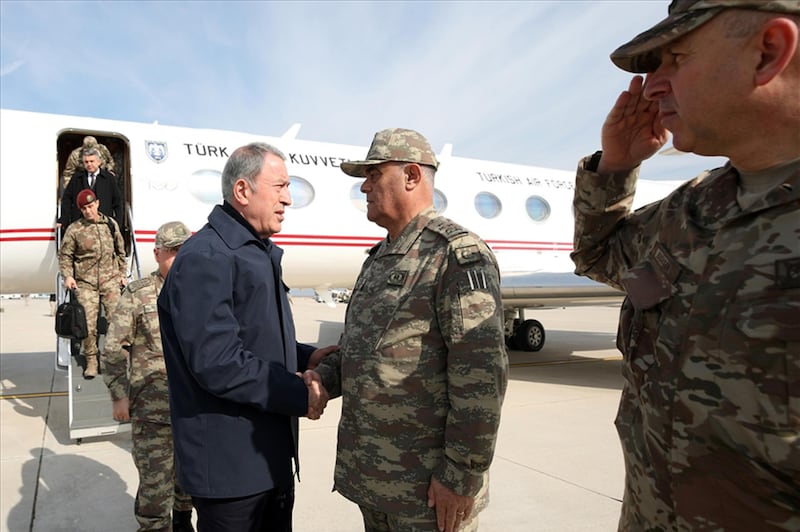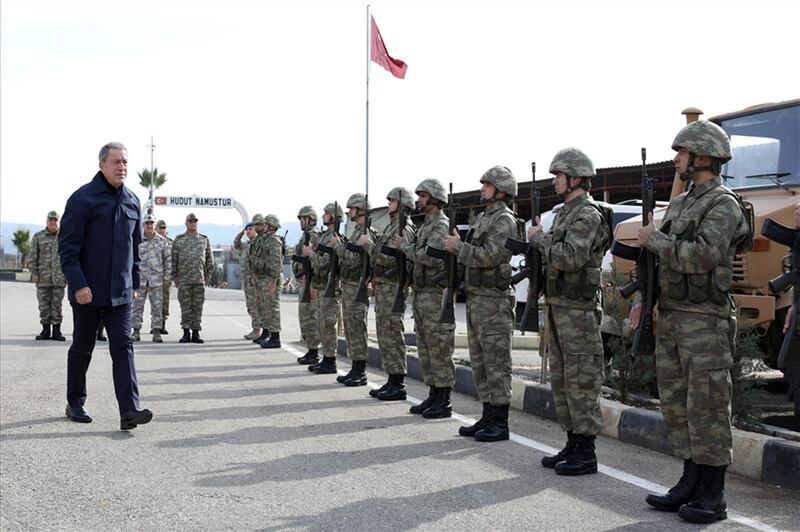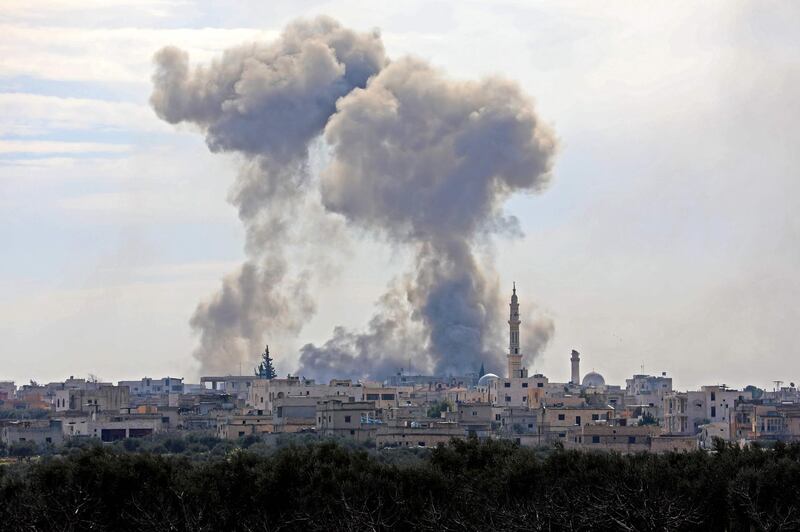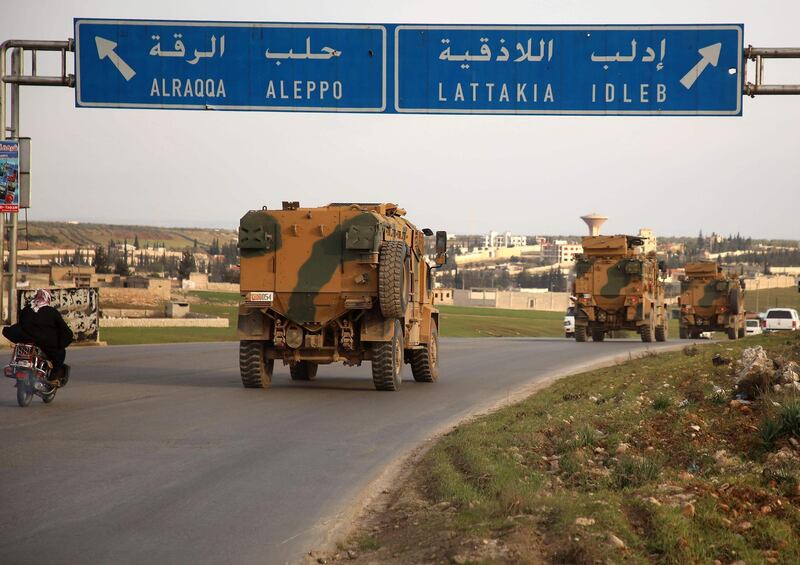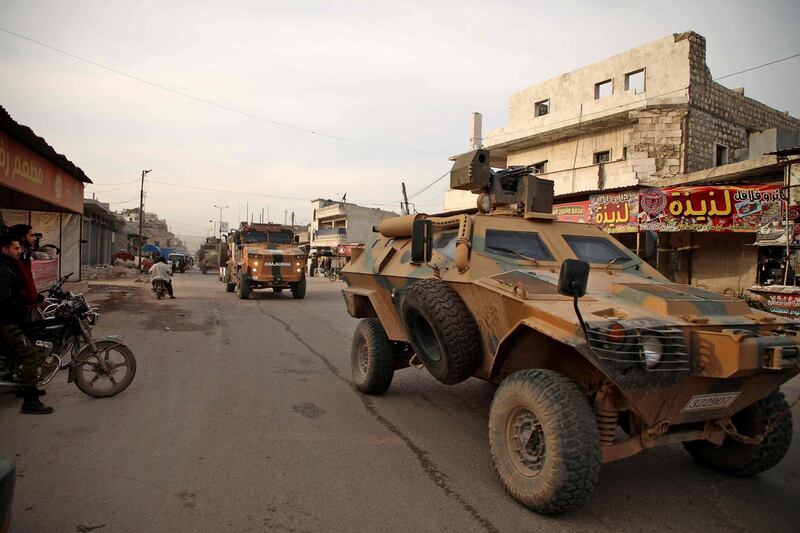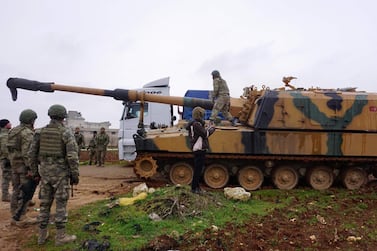Turkey on Thursday threatened to use force against "radicals" in Syria's Idlib province after strong criticism from Russia over its role in the rebel-held region where both countries brokered a ceasefire deal in 2018.
"Force will be used in Idlib against those who do not abide by the ceasefire, including the radicals," Defence Minister Hulusi Akar told reporters after a Nato defence ministers meeting in Brussels. "Any form of measure will be taken."
Idlib is held by an array of rebels including the Hayat Tahrir Al Sham group, led by members of Syria's former Al Qaeda branch. The HTS refused to surrender heavy weapons as required under the 2018 ceasefire agreement.
Mr Akar's comments follow an exchange of accusations between Ankara and Moscow over the situation in Idlib two months into a Syrian government offensive that has driven about 700,000 people from their homes.
Russia on Wednesday accused Turkey of ignoring its agreements with Moscow and of aggravating the situation in Idlib – one of the strongest signs yet that the military escalation is straining relations between the two main peace brokers in Syria's civil war.
Russia previously avoided direct criticism of Turkey over Syria but on Wednesday the Kremlin, the foreign ministry and the defence ministry all accused Ankara of bad faith. The comments came after a phone call between Russian leader Vladimir Putin and Turkish President Recep Tayyip Erdogan.
Foreign Ministry spokeswoman Maria Zakharova said Turkey was "disregarding its commitments" under agreements to reduce fighting between the Russian-backed Syrian military and opposition groups in Idlib, many of which are backed by Turkey.
The fighting in Idlib has escalated sharply since December as Syrian forces, backed by Russian air strikes, made significant gains in their campaign to eliminate the last insurgent bastion in the nine-year-old war. Turkey sent in more troops and weaponry into Idlib after advancing government forces surrounded some of its military observation posts and killed 13 Turkish personnel in the last 10 days.
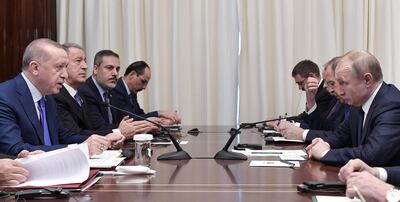
The Turkish outposts were set up under 2018 deal to create a demilitarised zone in Idlib.
The Kremlin said Turkey had failed to deliver on a promise to "neutralise" extremist militants in Idlib, something it called unacceptable. The Russian foreign ministry reminded Ankara its forces were in Syria without the blessing of the Syrian government, while the defence ministry said Turkish troops were seriously aggravating the situation in the province.
The defence ministry also rejected Mr Erdogan's allegation that Russian forces and Iran-backed militias were "constantly attacking the civilian people, carrying out massacres, spilling blood".
A Syrian war monitor has reported repeated bombardment of civilian targets in Idlib, including markets and medical facilities, that has left hundreds dead and wounded, including children.
Russia took issue with Turkey after Mr Erdogan said his military would strike Syrian forces by air or ground anywhere in Syria if another Turkish soldier was hurt.
Russia's defence ministry said the presence of Turkish troops in Idlib was making the situation there much worse.
“The situation is significantly aggravated by the delivery of weapons and ammunition” through the Turkish-Syrian border “as well as columns of Turkish armoured vehicles and troops”, the ministry said.
Kremlin spokesman Dmitry Peskov said Moscow remained committed to the deal on Syria it had struck with Ankara, but that Russia considered militant attacks in Idlib to be unacceptable and in contravention of the agreement.
